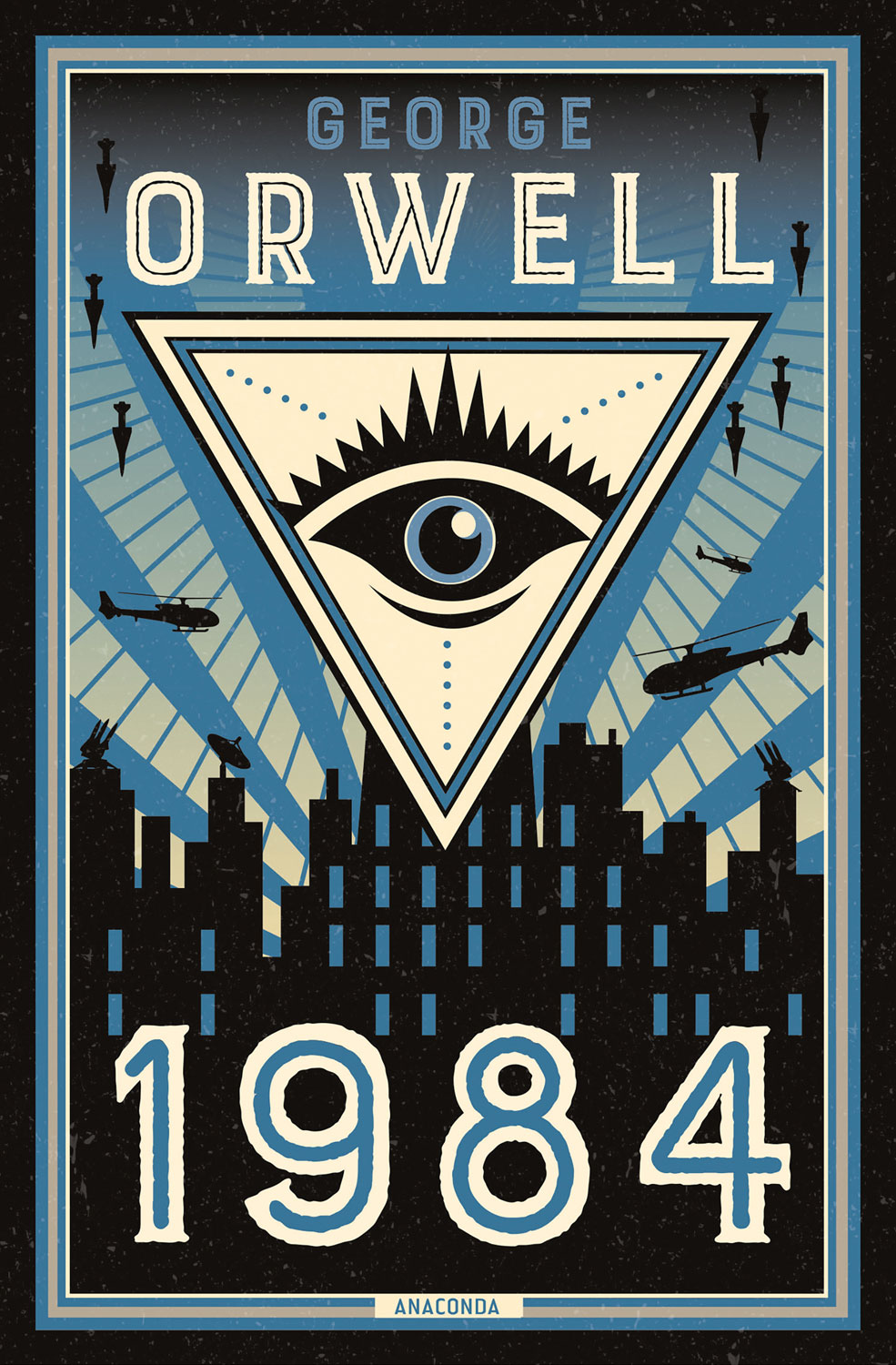What can be said of 1984 that hasn’t been said already?
1984 is an excellent book. Orwell is not the most talented writer, but he nonetheless paints a timelessly frightening tale of the death of privacy and freedom. After this re-read, I have a few scattered thoughts I’ll lay out below.
I am by no means the first to recognize clear parallels between the scenario Orwell describes in 1984, and our current sociopolitical climate in the USA (and abroad). For example, I was reminded of a recent book I read, Capitalist Realism: Is There No Alternative? by Mark Fisher, which (among other things) discusses the fact that Americans have no concept of an alternative to our current economic system (capitalism). It is accepted “as something unalterable, like the sky,” as the victims of capitalism continue to “simply evade” the entire system, rather than work together to rebel against it.
She had never heard of the Brotherhood, and refused to believe in its existence. Any kind of organized revolt against the Party, which was bound to be a failure, struck her as stupid. The clever thing was to break all the rules and stay alive all the same. He wondered vaguely how many others like her there might be in the younger generation— people who had grown up in the world of the Revolution, knowing nothing else, accepting the Party as something unalterable, like the sky, not rebelling against its authority but simply evading it, as a rabbit dodges a dog.
That same capitalism has done little to reduce wealth inequality (I would even say that wealth equality is quite antithetical to the implementation of capitalism), but in any case, Orwell’s criticism of the cyclical nature of historical revolutions still rings true today:
It would be an exaggeration to say that throughout history there has been no progress of a material kind. Even today, in a period of decline, the average human being is physically better off than he was a few centuries ago. But no advance in wealth, no softening of manners, no reform or revolution has ever brought human equality a millimeter nearer. From the point of view of the Low, no historic change has ever meant much more than a change in the name of their masters.
The scariest idea in 1984, in my opinion, is what Orwell attributes the Party’s success to: technology.
The ruling groups were always infected to some extent by liberal ideas, and were content to leave loose ends everywhere, to regard only the overt act, and to be uninterested in what their subjects were thinking. Even the Catholic Church of the Middle Age was tolerant by modern standards. Part of the reason for this was that in the past no government had the power to keep its citizens under constant surveillance. The invention of print, however, made it easier to manipulate public opinion, and the film and the radio carried the process further. With the development of television, and the technical advance which made it possible to receive and transmit simultaneously on the same instrument, private life came to an end. Every citizen, or at least every citizen important enough to be worth watching, could be kept for twenty-four hours a day under the eyes of the police and in the sound of official propaganda, with all other channels of communication closed. The possibility of enforcing not only complete obedience to the will of the State, but complete uniformity of opinion on all subjects, now existed for the first time.
I think Orwell is correct that “in the past no government had the power to keep its citizens under constant surveillance”— you can only hire so many cops or military members— but I’m not sure this is still the case. With new tech and the advent of AI/LLMs, privacy is quickly withering.
1984 is a hard and depressing book to read, not only because it ends so poorly for the characters, but because it reminds me what small distance exists between our society and the Party. Is it only a matter of time before such a thing occurs? It’s hard to say with any sort of confidence.
